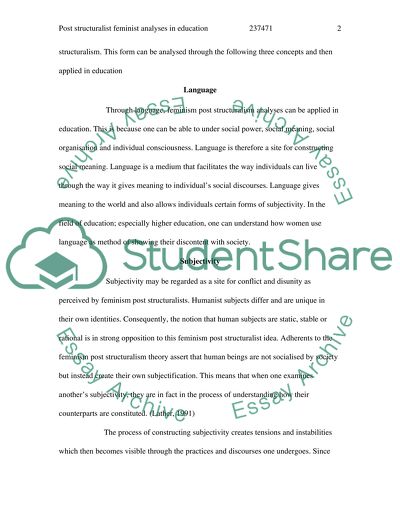Cite this document
(Post Structuralist Feminist Analyses in Education Coursework, n.d.)
Post Structuralist Feminist Analyses in Education Coursework. Retrieved from https://studentshare.org/education/1547719-key-concepts-within-poststructuralist-feminist-analyses
Post Structuralist Feminist Analyses in Education Coursework. Retrieved from https://studentshare.org/education/1547719-key-concepts-within-poststructuralist-feminist-analyses
(Post Structuralist Feminist Analyses in Education Coursework)
Post Structuralist Feminist Analyses in Education Coursework. https://studentshare.org/education/1547719-key-concepts-within-poststructuralist-feminist-analyses.
Post Structuralist Feminist Analyses in Education Coursework. https://studentshare.org/education/1547719-key-concepts-within-poststructuralist-feminist-analyses.
“Post Structuralist Feminist Analyses in Education Coursework”, n.d. https://studentshare.org/education/1547719-key-concepts-within-poststructuralist-feminist-analyses.


